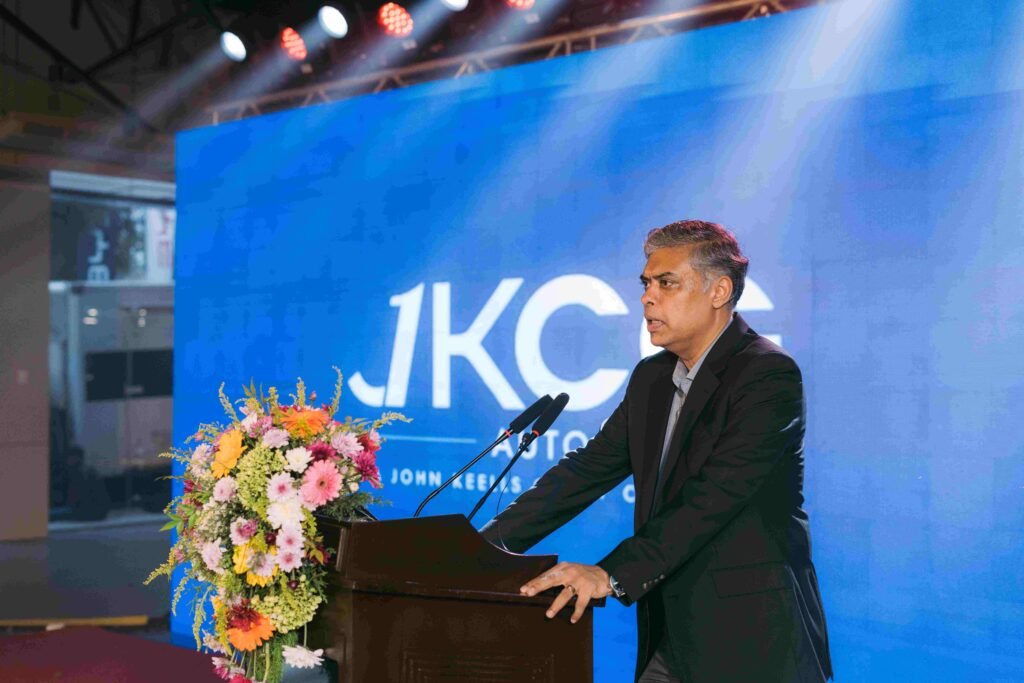By Oshana Dias
I recently had the privilege of attending the prestigious SHRM (Society for Human Resource Management) Annual Conference & Expo 2023 in Las Vegas, and as an HR professional from Sri Lanka in attendance, I was eager to immerse myself in the global HR community and gain valuable insights into the evolving landscape of human resources. The conference proved to be an enlightening experience, offering a glimpse into the new “abnormal” of the workplace and emphasizing the importance of giving back to our communities.
Embracing the ‘New Abnormal’
Addressing the gathering, SHRM President and CEO Johnny C. Taylor Jr. shed light on the “new abnormal.” Taylor acknowledged that the traditional ways of doing business have been disrupted, and organizations must adapt to this new reality. The pandemic has accelerated the pace of change, and as HR professionals, we must be prepared to navigate uncertainty and embrace agility.
In his thought-provoking address, Taylor highlighted the transformative potential of the HI
(human intelligence) plus AI equation, emphasizing the impact it can have on an organization’s return on investment (ROI). Acknowledging the apprehension surrounding automation and AI, Taylor assured HR professionals that their role is crucial in guiding employees through this transformative process and alleviating their concerns.
“But there are things that AI can’t do, and one is having a heart. It can’t replicate what humans can do to make a difference in others’ lives. After all, we are the humans in human resources. When you care for your people, they will spread the word about how great it is to work at your company,” Taylor Jr. observed. As the heart of human resources, our ability to make a difference in others’ lives is unparalleled. By prioritizing the well-being of our people, we not only create a positive workplace culture but also inspire them to become brand advocates, spreading the word about the exceptional experiences they have within our organizations.
Another key takeaway from Taylor’s address was reimagining work environments. The conference showcased innovative approaches, such as flexible work arrangements and remote collaboration tools, which have become critical for maintaining productivity and employee engagement. As we progress, organizations must foster a culture that values flexibility and embraces technology to drive success in this new era.
HR is a trusted source of Knowledge Equity
Further, Taylor Jr. spoke about the evolving role of HR in today’s business landscape. No longer just a partner in executive circles, HR has become a trusted source of knowledge equity, adding immense value to organizations. He noted that HR professionals must embody three essential qualities to navigate the challenges of this new abnormal: people expertise, business acumen, and a deep understanding of company culture.
Being a people expert entails not only building trust with employees but also having the ability to anticipate their responses to actions and behaviours. Understanding the intricacies of individuals within the organization is crucial for fostering a supportive and productive work environment. Simultaneously, HR professionals need to grasp the business side of operations, comprehending the dynamics of revenue generation and loss, to make informed decisions that contribute to the organization’s success.
Equally significant is the understanding of company culture. Taylor emphasized the need for HR to clearly articulate and exemplify the company’s culture, as it has become a critical factor for job seekers. Prospective candidates want to ascertain the alignment between their values and the company’s culture before committing their time and effort. Failing to deliver on promised cultural values can lead to negative online reviews and deter top talent from joining or remaining in the organization.
Taylor’s insights reinforce the multi-faceted nature of HR’s responsibilities. HR professionals must be adept at navigating the human element, understanding the financial landscape, and upholding and promoting a vibrant and authentic company culture. By embodying these qualities, HR becomes a driving force behind employee engagement, organizational success, and the attraction and retention of top talent.
Giving is Living
Another inspiring session at the conference was delivered by best-selling author Mitch Albom, who, taking a more holistic approach, emphasized the importance of giving back to our communities. He shared his personal journey and spoke of the profound impact that acts of kindness and generosity can have on individuals and organizations.
In his speech, Albom touched on the significance of investing time in people while we are alive. He explained that this investment allows our voices to resonate with others, even after we are gone. Albom highlighted that a life solely focused on personal achievements and accumulating wealth holds no lasting value. It is through acts of giving, rather than taking, that we indeed come alive and leave a meaningful legacy.
In today’s rapidly changing world, businesses have a unique opportunity to make a positive difference. Corporate social responsibility and philanthropy are no longer just buzzwords; they are integral components of a successful business strategy. At the conference, I witnessed numerous examples of organizations that have successfully integrated giving back into their company culture, leading to enhanced employee morale, brand reputation, and overall organizational success.
Former President Bill Clinton delivered a compelling address at the SHRM Annual Conference & Expo 2023, further enriching the transformative experience of the event. His presence underscored the significance of HR’s role in shaping the future of work. Clinton emphasized fostering inclusive workplaces prioritising diversity, equity, and inclusion. He also highlighted the power of HR professionals to create environments where every individual feels valued, respected, and given equal opportunities. By championing diversity and providing platforms for underrepresented voices, HR can drive innovation, enhance productivity, and create a more equitable society.
“If you take care of the people that work for you, the communities they’re a part of, as well as your suppliers, you’ll do better overall,” Clinton explained. His insights were a powerful reminder that HR can effect positive change at both a micro and macro level, leaving a lasting impact on individuals and society.
In Conclusion
HR professionals play a critical role in driving workplace change. Our responsibility is to be the catalysts for transformation, ensuring our organizations are prepared for the future. This requires a proactive approach to talent management, diversity and inclusion initiatives, employee well-being, and organizational resilience.
The conference also underscored the importance of embracing flexibility, leveraging technology, and prioritizing corporate social responsibility. It reminded me that, as HR professionals, we have a unique opportunity to shape the future of work and create organizations that are not only successful but also compassionate and impactful.
I return to Sri Lanka with a renewed sense of purpose and determination to lead my organization through these transformative times. By harnessing the insights gained from the SHRM Conference, I am confident in our ability to drive workplace change and make a positive difference in the lives of our employees and communities.
(The writer is the Chief People Officer at Fortude)





